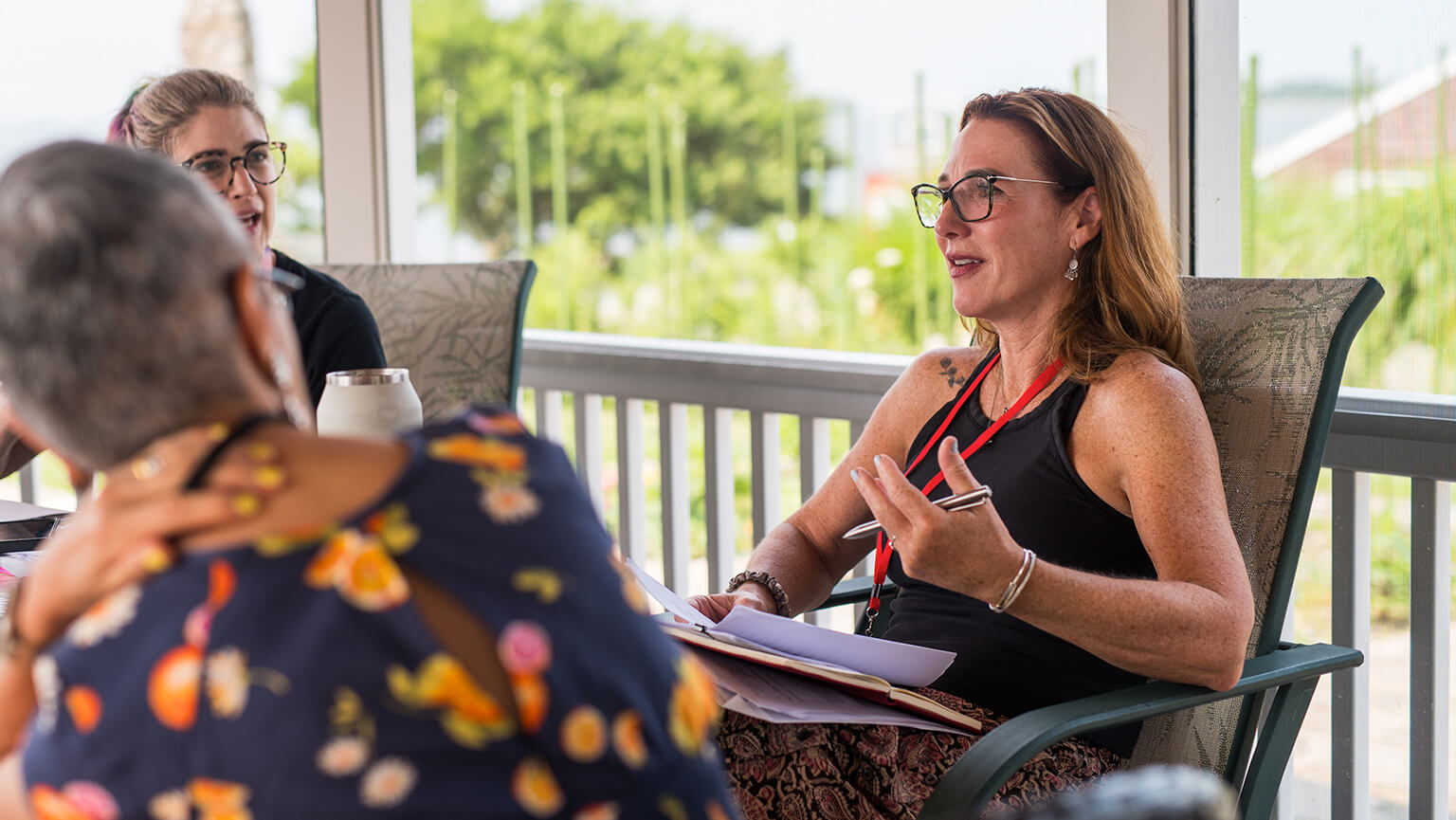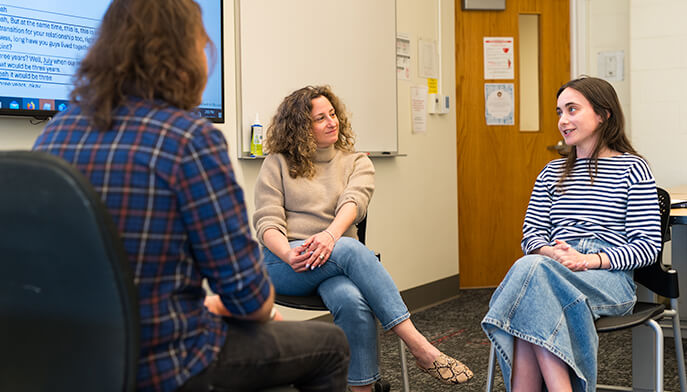Thinking about an MFA? Explore creative writing programs, funding, writing workshops, and careers in the publishing industry.
If you’ve ever dreamed of seeing your name in print, teaching the next generation of writers, or joining a vibrant community of storytellers, you may have wondered how to get an MFA in creative writing. A Master of Fine Arts (MFA) in creative writing is a graduate-level terminal degree designed to help writers refine their creative writing skills, connect with peers and faculty members, and gain professional experience that can open doors in the publishing industry, academia, and beyond.
Whether your goal is to publish a novel, write literary nonfiction, or launch a career in editing, understanding what an MFA in creative writing entails—and what to expect along the way—can help you decide if pursuing an MFA is right for you.
Why Pursue an MFA in Creative Writing?
Before diving into application deadlines and program logistics, it’s important to understand the benefits of an MFA. A creative writing program offers far more than just classes; it provides mentorship, structure, and opportunities to grow personally and professionally.
Improve Your Craft Through Structured Learning
An MFA gives you the chance to refine your creative writing skills through intensive writing workshops, genre-specific courses, and personalized feedback from experienced faculty members. These workshops help you analyze your work from different perspectives and strengthen your storytelling techniques.
Build a Writing Community
Writing can often feel solitary, but an MFA program connects you with fellow MFA students who share your passion. These connections often grow into lifelong friendships and collaborations. A strong writing community can also lead to opportunities to publish in literary magazines, join critique groups, and find accountability partners who keep you motivated. You’ll also get used to sharing your work, receiving feedback, and refining your writing with input from a community of peers.
Access Mentorship and Networking Opportunities
Many creative writing programs are led by award-winning authors, editors, and literary scholars. These faculty members provide guidance on everything from improving your craft to navigating the publishing industry. Some programs also invite visiting authors and industry professionals, expanding your network and helping you learn what editors and agents are looking for.
Explore Professional and Literary Opportunities
A well-designed creative writing program often includes options to gain practical experience. You might contribute to a university-run literary magazine, complete internships, or participate in readings and events that showcase your work to the wider community.
How to Apply to an MFA in Creative Writing Program
When considering how to get an MFA, the admissions process can feel daunting—but breaking it into steps makes it manageable. Here’s how to navigate the application journey.
Research Writing Programs
Not all writing programs are created equal. Some focus on fiction, others on poetry, screenwriting, or literary journalism. Some are fully online, while others require full-time residency. As you conduct research, ask yourself:
- Does the program offer the genres I’m most interested in?
- Are there opportunities to work on literary magazines or with published authors?
- Does the program emphasize writing workshops or critical studies?
- Is the program flexible enough to balance with work or family commitments?
Prepare Strong Writing Samples
Your writing samples are the heart of your application. Most MFA programs require 10–30 pages of your best work, depending on the genre. Choose pieces that reflect your voice and showcase your range. Before submitting, seek feedback from trusted readers or mentors.
Gather Recommendations
Strong letters from professors, colleagues, or mentors can help admissions committees understand your potential as an MFA student. Be sure to ask recommenders early and provide them with your résumé, writing samples, and personal statement for context.
Write a Compelling Personal Statement
This is your chance to share why you want to pursue an MFA and what you hope to gain from the program requirements. Be authentic and highlight what makes your perspective unique.
Understand Program Deadlines
Application timelines vary, but many programs have deadlines in late fall or early winter for admission the following year. Be sure to plan ahead. The Fairfield University MFA in Creative Writing accepts applications on a rolling basis. However, to ensure timely consideration, you should apply for the spring semester for the winter residency or for a fall semester start date if you prefer the summer residency.
What to Expect from an MFA Program: Structure and Requirements
Each MFA program has its own format, but most share these 5 common features. Understanding the typical program requirements can help you find the right fit.
Genres and Concentrations
Many creative writing programs allow you to specialize in fiction, nonfiction, poetry, or hybrid forms like literary journalism. Some even offer tracks in screenwriting or playwriting. Fairfield offers additional concentrations in editing and publishing, literary health and healing, social justice, veterans community, and spiritual writing.
Writing Workshops and Coursework
Core writing workshops are at the heart of an MFA experience. These courses give you structured time to create new work, receive feedback, and learn from others’ writing. Beyond workshops, you’ll also take literature seminars, craft classes, and electives.
Residency and Online Formats
Some writing programs require full-time residency, meaning you live on campus and attend classes in person. Others offer low-residency or online formats that combine virtual coursework with brief on-campus sessions, giving working professionals more flexibility. Learn more about Fairfield’s low-residency opportunities.
Faculty Mentorship
One of the greatest advantages of an MFA degree is access to highly experienced faculty members who guide your development as a writer. They can help you navigate the creative process, prepare for publication, and develop teaching skills if you plan to pursue academia.
Thesis or Capstone Project
Most programs culminate in a book-length manuscript or collection, such as a novel, short stories, essays, or poems. This thesis demonstrates your mastery of creative writing skills and serves as a portfolio piece for agents or publishers.
Financing Your MFA: Tuition, Scholarships, and Assistantships
Cost is an important consideration when deciding how to get an MFA. Tuition varies widely by institution, but there are several ways to make your degree more affordable.
Tuition and Fees
A Master of Fine Arts program can range from moderate to expensive, depending on location and format. Make sure you understand the full cost, including tuition, materials, and potential travel for low-residency programs.
Scholarships and Fellowships
Many schools offer merit-based scholarships and fellowships to exceptional MFA students. Applying early and demonstrating strong writing samples can improve your chances of receiving financial aid. At Fairfield, MFA applicants with significant prior creative writing experience can earn up to 15 credit hours or a full semester, allowing you to finish in three semesters instead of four.
Teaching and Graduate Assistantships
Some creative writing programs provide opportunities to teach undergraduate courses or assist with research in exchange for tuition remission and a stipend. This can be an excellent way to gain teaching experience while reducing costs. Fairfield offers graduate aid and assistantships, benefits for veterans, as well as a $5,000 MFA Fellowship for their creative writing MFA program.
External Funding Sources
Don’t overlook grants, contests, and scholarships from literary organizations, literary magazines, and writing foundations. Fairfield University’s MFA program is one of the few MFA programs in the country to offer its students the opportunity to win a professional book contract. The Fairfield Book Prize is awarded every two years to a Fairfield University MFA student or alumni who has entered an original and compelling book-length manuscript to its contest.
Career Opportunities After Earning an MFA
One of the most common questions prospective students ask is: What can you do after you earn an MFA? While publishing a book may be the dream, an MFA degree offers a range of professional possibilities.
Publishing and Editing
Many graduates work in the publishing industry, joining editorial teams, literary agencies, or marketing departments. Others leverage their skills to become freelance editors.
Teaching and Academia
Because the MFA degree is a terminal degree, it often qualifies graduates to teach at the college or university level, opening opportunities for tenure-track or adjunct positions.
Freelance and Professional Writing
Some MFA students turn their refined creative writing skills into careers in journalism, content writing, copywriting, or literary journalism.
Building a Literary Presence
An MFA program can also give you the foundation to publish your work, start a literary magazine, or lead writing workshops in your community.
Finding the Right MFA Program for You
Deciding whether to pursue an MFA is a deeply personal choice. A creative writing program can help you grow as a writer, connect you with a vibrant writing community, and open doors to exciting professional opportunities. By taking the time to conduct research, prepare strong writing samples, and find the right fit, you can set yourself up for success.
Whether you dream of publishing a novel, teaching in higher education, or building your career in the publishing industry, an MFA in creative writing can provide the tools, mentorship, and network you need to thrive. With careful planning, commitment, and passion, you can find a program that supports your goals—and take the next step toward becoming the writer you want to be.



